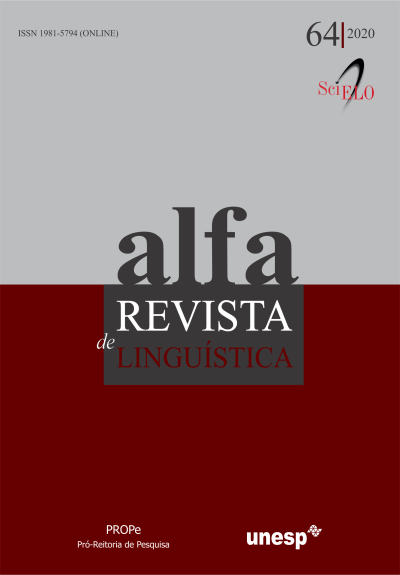An analysis for vel-adjectives in the light of distributed morphology
DOI:
https://doi.org/10.1590/1981-5794-e11739Keywords:
Distributed morphology, vel-Adjectives, Modality,Abstract
This paper presents an analysis for vel-adjectives based on Distributed Morphology framework (HALLE; MARANTZ, 1993). This proposal, developed on Oltra- Massuet’s (2014) work, argues that the modal (possibility, probability and obligation) and the non-modal (trigger) readings associated to vel-adjectives result from the presence of different functional heads composing their structure (vo, Asp and Mod). Under this view, this paper claims that /vel/ amounts to a single Vocabulary item spelling out the adjectival head (aº) in the environment of both ModP morpheme and [cause] feature. This explains the different readings, which Brazilian Portuguese speakers relate to these adjectives. Adjectives licensinga modal interpretation have a ModP morpheme in their structure, whereas the ones with a non-modal reading do not project it. This study proposes an important structural distinction among vel-adjectives having a modal reading, namely, only the ones presenting a possibilityreading project Voice, the other ones project only vP, which inserts the event-reading, but does not license the extern-argument projection (see KRATZER, 1996; ALEXIADOU, 2001). Finally, the present analysis suggests the occurrence of a [cause] feature at adjectival head, which assigns the trigger reading to vel-adjectives with a non-modal reading.
Downloads
Downloads
Published
How to Cite
Issue
Section
License
Manuscripts accepted for publication and published are property of Alfa: Revista de Linguística. It is forbidden the full or partial submission of the manuscript to any other journal. Authors are solely responsible for the article's content. Translation into another language without written permission from the Editor advised by the Editorial Board is prohibited.

